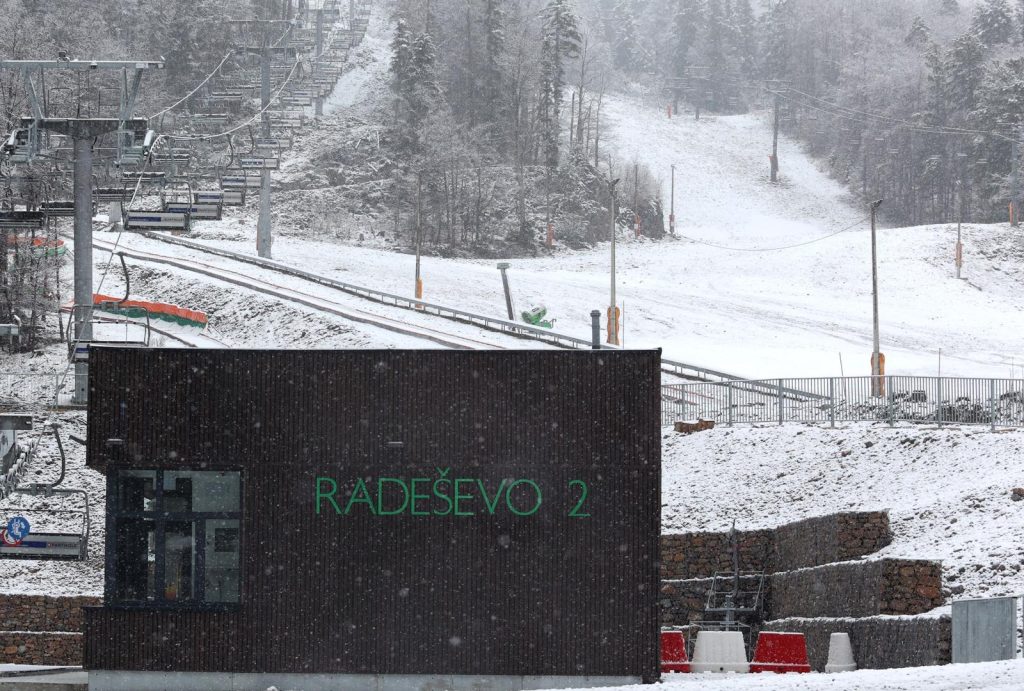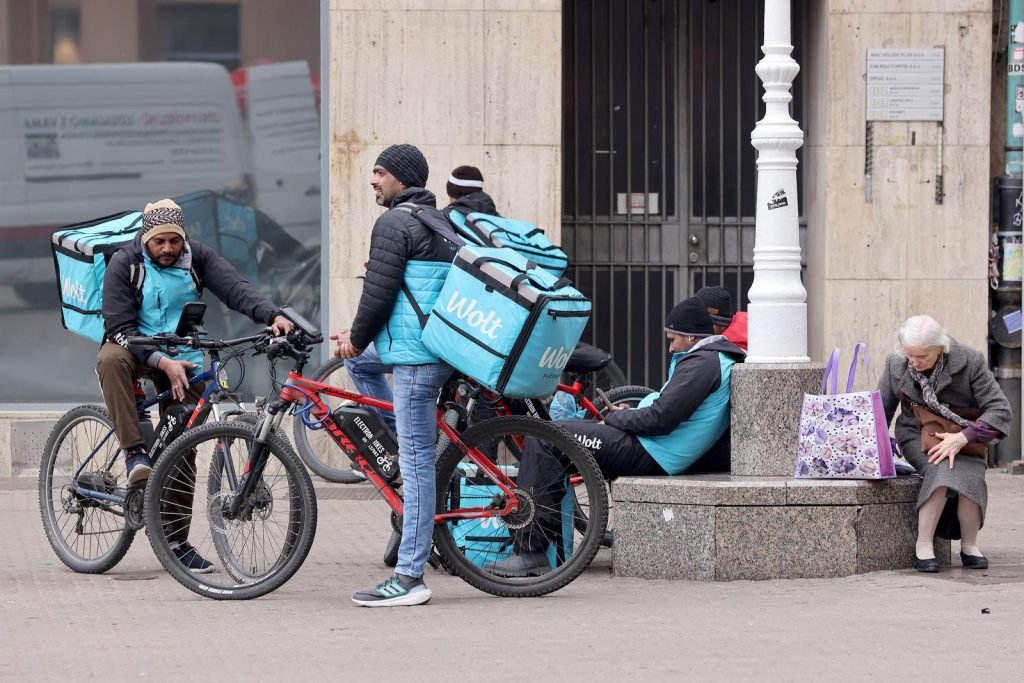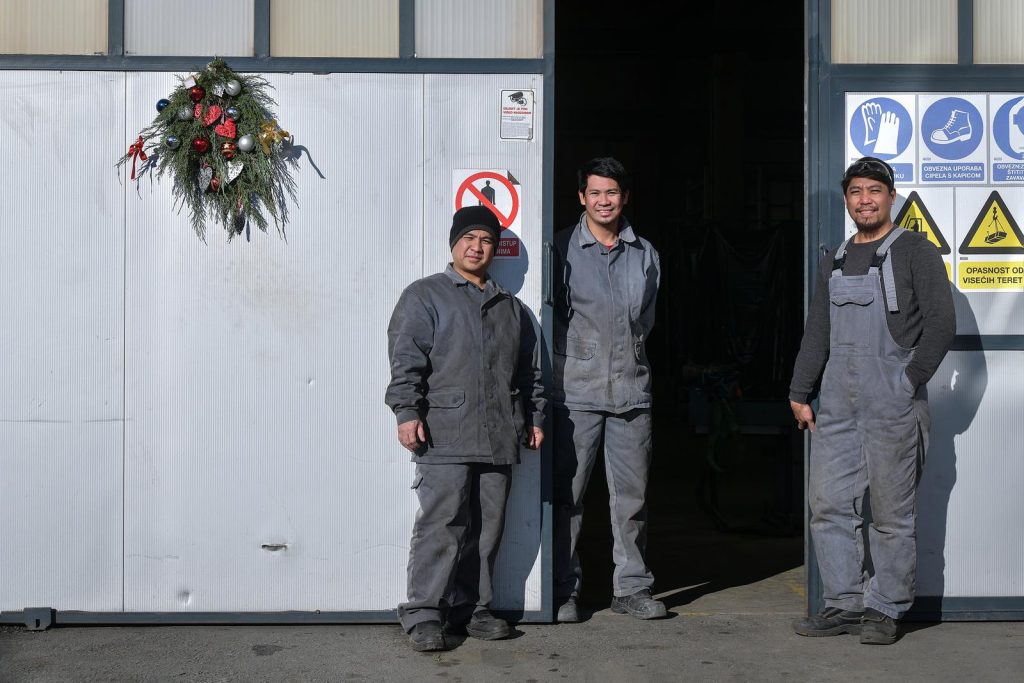March the 14th, 2024 – Foreign workers in Croatia have praised the working conditions in the country, with some even going as far as to say it’s better here than it was in Qatar.
As Poslovni Dnevnik writes, 29-year-old Filipino national Jaypee Jagorin was open in saying that he “likes that everyone in Croatia is so friendly” but that he “likes the weather the least”, believing it to be too cold.
“The first time I ever saw snow was in Croatia”

“The first year I came here is when I saw the first snow in my entire life, because there’s no snow in the Philippines, only rain and sun. After the first snow fell, I realised that I had to put on very thick clothes, three jackets and some strong boots,”
Jaypee Jagorin recalled his experience with the snow with a fond smile, and he has otherwise been working in the food department of the famous Mlinar bakery industry for two years now. Over time, he got used to the cold, and even had a baby in Zagreb with his wife, who also works for Mlinar. He hasn’t been back to the Philippines for five years, where his parents, brothers and sisters still live. Before coming to Croatia in 2022, he worked in Qatar.
His colleague Sonny Yadao works as a deliveryman and admits that his lack of knowledge of the Croatian language is the biggest obstacle in his job. He said that when the people he has to work with don’t speak English, he tries to communicate with body language, but he has already learned some basic words.
“My favourite Croatian word is dobro jutro (good morning) wherever I go, I always greet people with a smile and my colleagues like it”, said Sonny, but behind his cheerful spirit and positive energy there is still a lot of sadness and nostalgia for his home back in the distant Philippines.
“I miss home. I haven’t been back to the Philippines in six years. Even when my father passed away, I couldn’t go home because of the the coronavirus restrictions in Qatar. It was an extremely difficult time for me, but I had to accept things how they were. I can’t help my family financially if I go home,” said Sonny. Jaypee and Sonny are examples of foreign workers who came to Croatia to work for a private company, but state-owned companies such as Croatian Post (Hrvatska posta) are also increasingly employing foreign workers.
Croatian post is turning more to foreign workers

29-year-old Hasan M. from Bangladesh is one such individual. He works at the post office in Zagreb, and he decided on this country because his huge goal was to come to Europe and he described Croatia as the easiest to come to.
Of the almost nine thousand employees of Hrvatska posta, 97 of them are foreign workers. 69 of them arrived in Croatia from India, the Philippines, Nepal, Bangladesh, Pakistan and Chile, while the rest are from elsewhere in Europe, primarily from neighbouring non-EU countries such as Serbia, Macedonia and Bosnia and Herzegovina. Hasan was asked what the biggest differences are between working in Bangladesh and here in Croatia.
He revealed that in Croatia, he always works eight hours, while in his home country he sometimes had to work 10 to 12 hours at a time. In Bangladesh, he worked as a food delivery man, and he can drive both a motorcycle and a car.
“The job of a postman and a delivery person is very similar, but the traffic in Bangladesh and Croatia is very different. The Croatian traffic system is really good, people respect the rules of the road, while in Bangladesh there are many more violations of traffic regulations and people don’t even bother reading the road signs. That’s why it’s easier to work here,” said Hasan.
He lives in accommodation provided by Hrvatska posta with two roommates who are also from Bangladesh. He is not alone in Croatia, because his older brother also works in the construction sector here. He left his wife and child back in Dhaka in search of a better salary to ensure a more comfortable life for them.
“It’s better in Croatia than it is in Qatar”

“There’s a big difference between working in Qatar and in Croatia. The people are completely different, I like it better in Croatia”, compared Jaypee.
He said that learning the Croatian language, which is very different from the Filipino language, is quite difficult for him, and diacritical marks give him special trouble. Foreigners who know Croatian are the best option for employers, so at the beginning of the year it was noted at the Economic and Social Council that integration will be carried out to the greatest extent through Croatian language courses with vouchers through the Croatian Employment Service.











